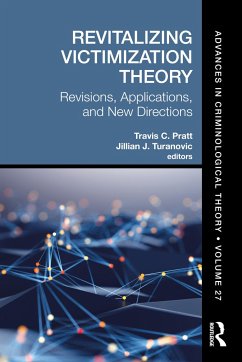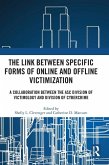Revitalizing Victimization Theory: Revisions, Applications, and New Directions revises some of the major perspectives in victimization theory, applies theoretical perspectives to the victimization of vulnerable populations, and carves out new theoretical territory that is clearly needed but has yet to be developed. With the exception of a handful of isolated works in the mid-twentieth century, theory and research on victimization did not come into its own until the late 1970s with the articulation of lifestyle and routine activity theories. Research conducted within this tradition continues to be an important part of the overall criminological enterprise, and a large body of empirical knowledge has been generated. Nevertheless, theoretical advances in the study of victimization have largely stalled within the field of criminology. Indeed, little in the way of new theoretical headway has been made in well over a decade. This is an ideal time to revitalize victimization theory,and this volume does just that. It is an ambitious project that will hopefully reignite the kinds of theoretical discussions that once held the attention of the field.
The work included here will shape the future of victimization theory and research in years to come. This volume should be of interest to a wide range of criminologists and have the potential to be used in graduate seminars and upper-level undergraduate courses.
The work included here will shape the future of victimization theory and research in years to come. This volume should be of interest to a wide range of criminologists and have the potential to be used in graduate seminars and upper-level undergraduate courses.








